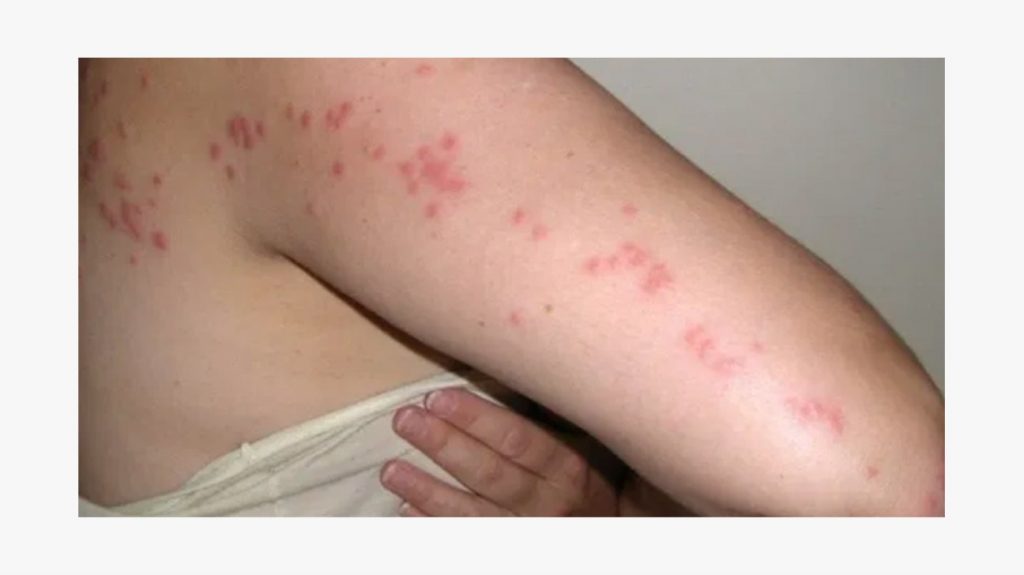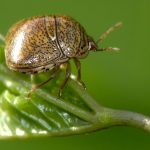As a frequent traveler, I have often asked myself “why do bed bugs bite me and not others”? It’s an annoying and uncomfortable mystery that has kept me up at night. Have I done something wrong? Is there something about me that attracts these bugs? I’m determined to discover the truth behind bed bugs’ biting habits.
What are Bed Bugs?
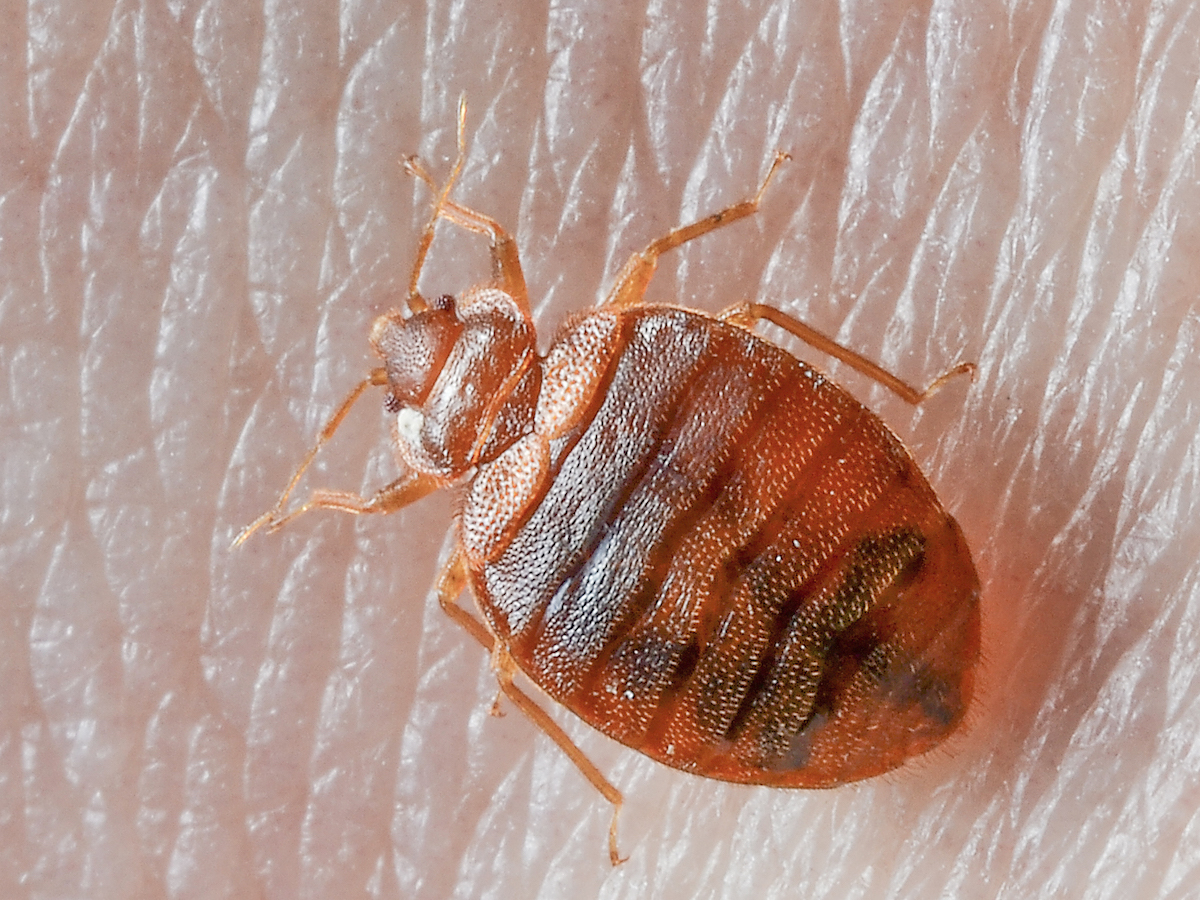
Bed bugs are small parasitic insects, typically found in bedrooms and other sleeping areas. They feed off human blood and are usually active at night, when people are asleep. Bed bugs are notorious for their ability to spread quickly and easily. They can be brought in from other rooms, or even from outside the home. Bed bugs can survive for up to a year without feeding, making them especially difficult to eliminate. They can also hide in tiny cracks and crevices, making them hard to find. Bed bugs are usually brown in color, but turn reddish after feeding. They are about the size of an apple seed, and their bites can cause itching and redness.
What Causes Bed Bugs to Bite?
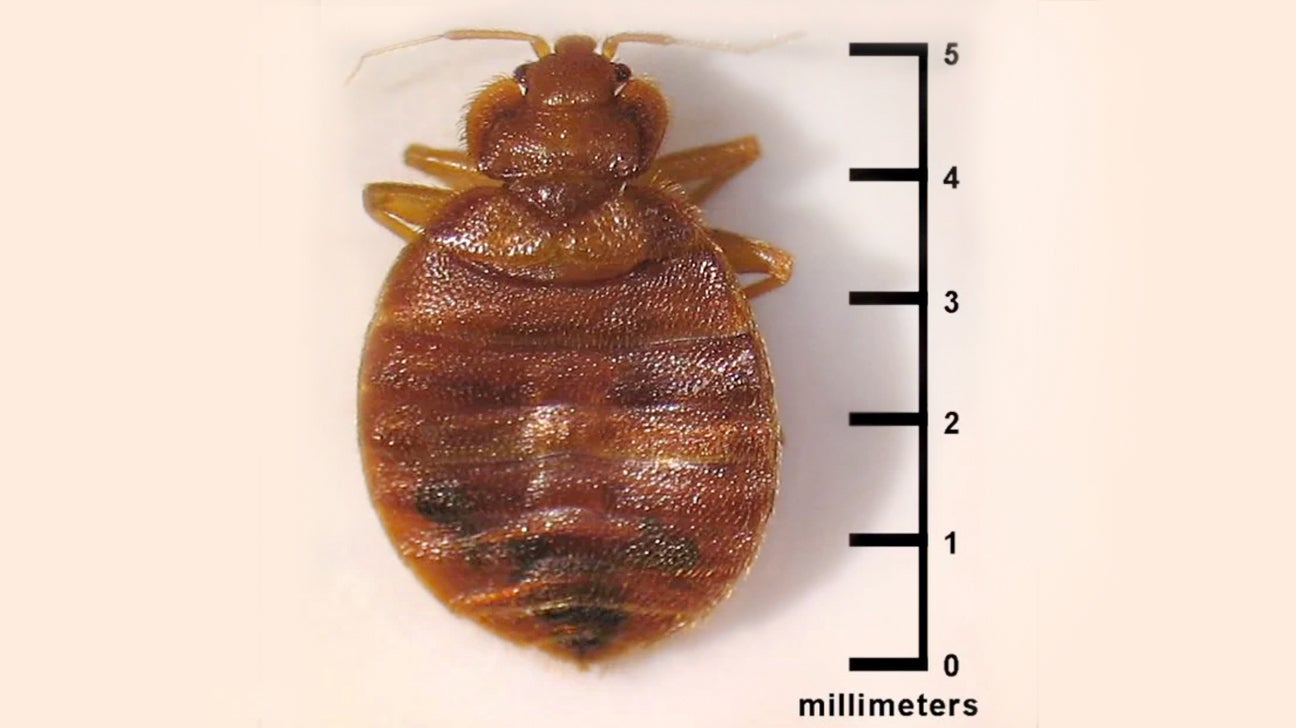
Bed bugs bite me because I provide a food source for them. Bed bugs are attracted to the carbon dioxide that I exhale and the warmth of my body. My body is a food source to them, and when they detect my presence, they come out of hiding and bite me. Bed bugs aren’t picky when it comes to who they bite; they are attracted to anyone that is in their vicinity. They can be found in beds, furniture, bedding, and clothing, so it is important to keep these areas clean and free of clutter. Additionally, bed bugs can be transported from one place to another on clothing, luggage, and other items, so it is important to be aware of where you have been to reduce the risk of bringing bed bugs into your home.
Why Do Bed Bugs Bite Some People and Not Others?
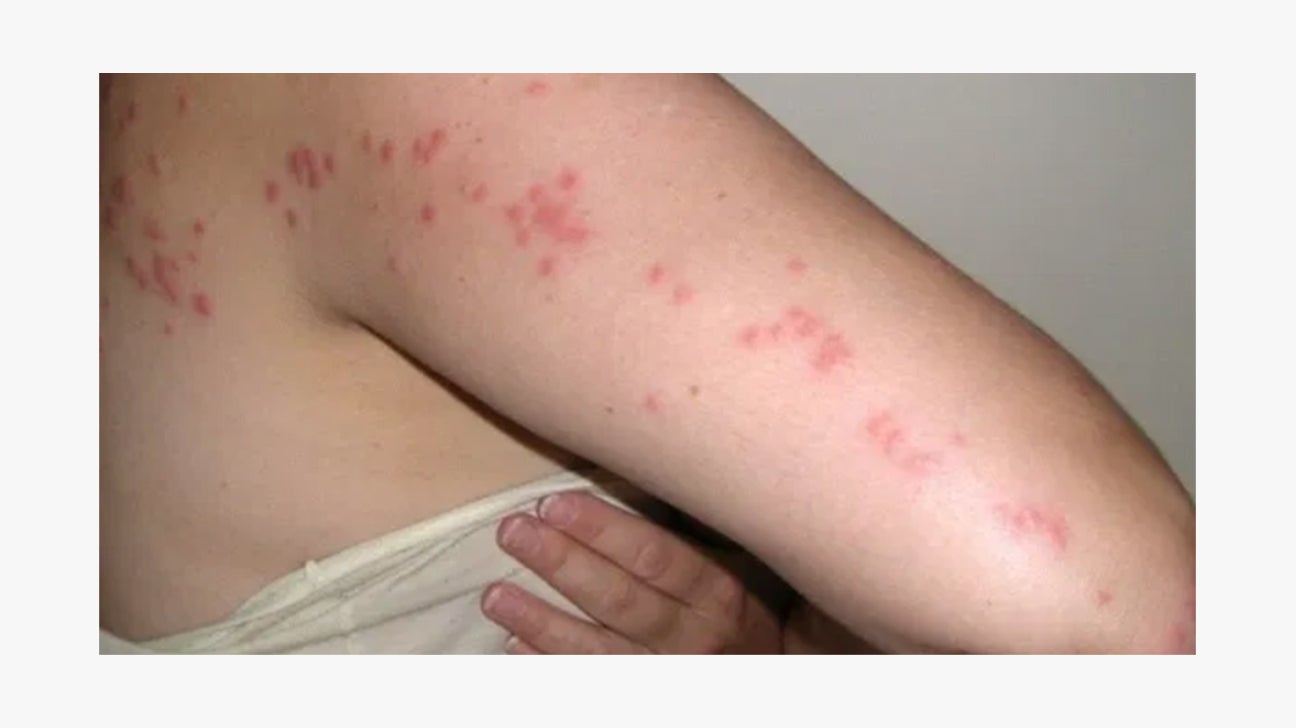
As a bed bug victim, I’m often asked why I get bitten while others don’t. It’s a complicated question, and one with no single answer. However, there are several factors that can increase or decrease the risk of being bitten.
Factors That Increase the Risk of Bed Bug Bites
Bed bugs are attracted to certain pheromones in humans, so those with higher concentrations may be more attractive to them. I’m also more likely to be bitten if I sleep in a room with a large infestation. If I’m in a warm, humid environment, I’m at greater risk of being bitten since this is a preferred habitat for bed bugs.
Factors That Reduce the Risk of Bed Bug Bites
Using bed bug-proof linens and encasements on mattresses and box springs can help prevent bed bugs from biting me. I’m also less likely to be bitten if I keep my bedroom clean, as this makes it more difficult for bed bugs to find me. I also need to make sure I don’t bring in any second hand furniture that may have bed bugs.
How to Reduce the Risk of Bed Bug Bites
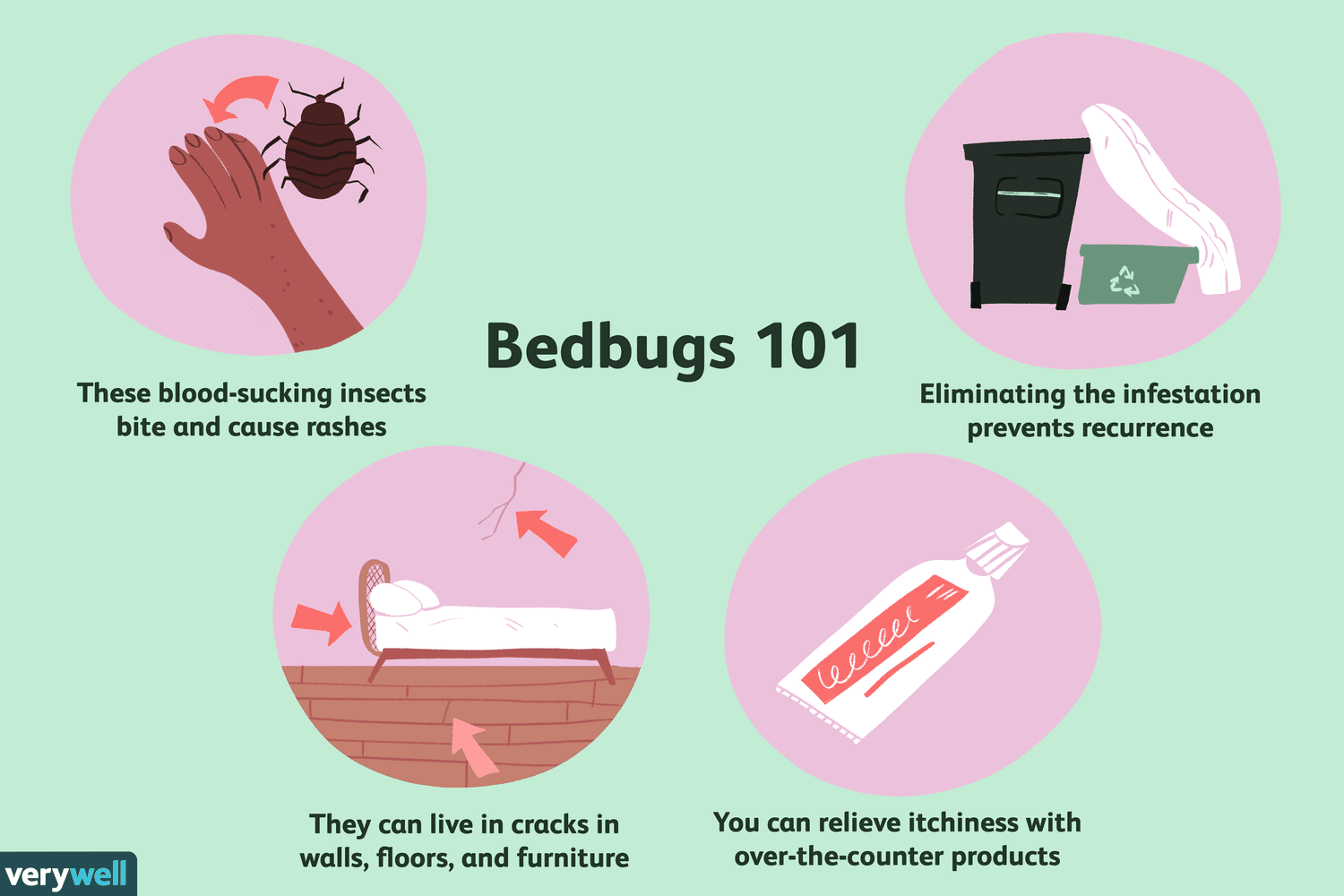
I can reduce the risk of bed bug bites by following some simple preventive measures. Firstly, I should inspect my bed regularly for signs of bed bugs such as blood stains or shed skins. I should also check the bed frame, mattress and headboard for any signs of bed bug activity. If I find any signs, I should contact a professional pest control service to help me eliminate the problem.
Secondly, I should use an encasement mattress and box spring to prevent bed bugs from getting inside. I should also avoid bringing second-hand furniture and mattresses into my home, as they can easily be infested with bed bugs.
Thirdly, I should vacuum my bed and any furniture around it regularly to remove any bed bugs or their eggs. I should also reduce clutter around my bed, as bed bugs can hide in the mess.
Finally, I should regularly wash and dry my bedding, curtains and any other fabric items at a high temperature on a hot cycle. This will help to kill any bed bugs present. I should also seal any cracks in the walls, as this will prevent bed bugs from entering my home.
How to Treat Bed Bug Bites

- Clean the bite area with soap and water.
- Apply an over-the-counter anti-itch cream to the bite area.
- If itching persists, apply hydrocortisone cream or calamine lotion to the bite area.
- If needed, take an antihistamine for additional relief from itching.
- To help prevent infection, apply an antibiotic ointment to the bite area.
- An ice pack may also help reduce swelling and itching.
Prevention Tips
I can take a few steps to help prevent bed bugs from coming into my home. First, I should check the secondhand furniture and other items that I bring into my home for signs of bed bugs before bringing them inside. I should also regularly inspect the seams and crevices of my mattress and box spring for any signs of bed bugs. If I’m staying in a hotel or other public place, I should check for bed bugs before settling down for the night. I should also avoid setting my suitcase on the bed or floor when I’m traveling. Finally, I should keep my home free from clutter to reduce the number of hiding spots for bed bugs.
What to Do if You Find Bed Bugs
Check for signs of bed bugs. Look for black spots (bed bug excrement), red stains (bed bug blood), eggs, and empty exoskeletons on furniture, bedding, and other surfaces.
Vacuum the entire room and furniture. Dispose of the vacuum bag immediately after to avoid spreading the bed bugs.
Encase mattresses, box springs, and pillows in mattress encasements to prevent bed bugs from infesting them.
Launder all bedding, clothing, and curtains in hot water and dry on a high heat setting.
Call a professional pest control company to treat the infestation.
Inspect other rooms and the rest of the house for bed bugs.
Clean or discard any items that may have bed bugs on them.
Avoid purchasing used furniture and bedding.
Keep suitcases away from furniture and the floor when traveling.
Use mattress, box spring, and pillow encasements while staying in hotels.
Frequently Asked Questions
What is the Mystery Behind Bed Bugs’ Biting Habits?
Bed bugs have a complex biting behavior that is still not fully understood. While some individuals may be more attractive to bed bugs than others, the exact reasons remain unknown. It is thought that bed bugs are attracted to certain chemical factors in human skin, such as blood type or sweat, but this has not been confirmed. Additionally, bed bugs may prefer certain body parts for biting, such as the face, neck, arms, and hands. This further complicates the mystery behind bed bugs’ biting habits.
How do bed bugs choose who to bite?
Bed bugs typically feed at night and prefer exposed skin, such as the face, neck, arms and hands. They are attracted to body heat, the carbon dioxide we exhale, and the chemicals we naturally emit. Bed bugs are opportunistic and will bite any warm-blooded body they can access. However, they may prefer certain people over others due to body chemistry, blood type, and other factors.
What factors can increase the likelihood of bed bug bites?
Bed bug bites are more likely when someone is sleeping for a prolonged period of time in an infested area, wears clothing that has been used in an infested area, or has recently acquired used furniture or clothing. Bed bugs are attracted to body heat and carbon dioxide, so sleeping individuals are more attractive to them. Additionally, crowded living conditions and clutter can make it easier for bed bugs to hide and travel between rooms and beds.
Are there any safety measures that can be taken to reduce the risk of bed bug bites?
Bed bugs are drawn to warmth and carbon dioxide, so sleeping in a cool room and using a fan can help to reduce the risk of being bitten. Additionally, reducing clutter in the bedroom, such as piles of clothes, books, and other items, can also help to keep bed bugs away. Mattresses and bed linens should be washed regularly in hot water and dried on the highest heat setting. It is also important to check for signs of bed bugs regularly, such as small, rust-colored spots on bedding or furniture. Vacuuming regularly and using mattress encasements can also help to reduce the risk of bites.
Are there any differences in bed bug bites among different individuals?
Bed bug bites are typically the same for everyone, however there are some differences in the intensity of the bites depending on an individual’s sensitivity. People with weakened immune systems or allergies may find that their bites become more itchy and swollen than normal. In addition, people who have never been bitten before may experience more intense reactions than someone who has been bitten many times.
Conclusion
Bed bug biting habits are complex, and there are a variety of factors that determine why bed bugs may end up biting some people and not others. Generally, bed bugs will bite people who are close to their hiding places, who are unaware of their presence, and who happen to be sleeping while the bugs are active. However, factors such as body heat, carbon dioxide, and even the individual’s blood type can play a role in whether or not a bed bug chooses to bite a person. Ultimately, the only way to prevent bed bug bites is to eliminate the infestation entirely.
